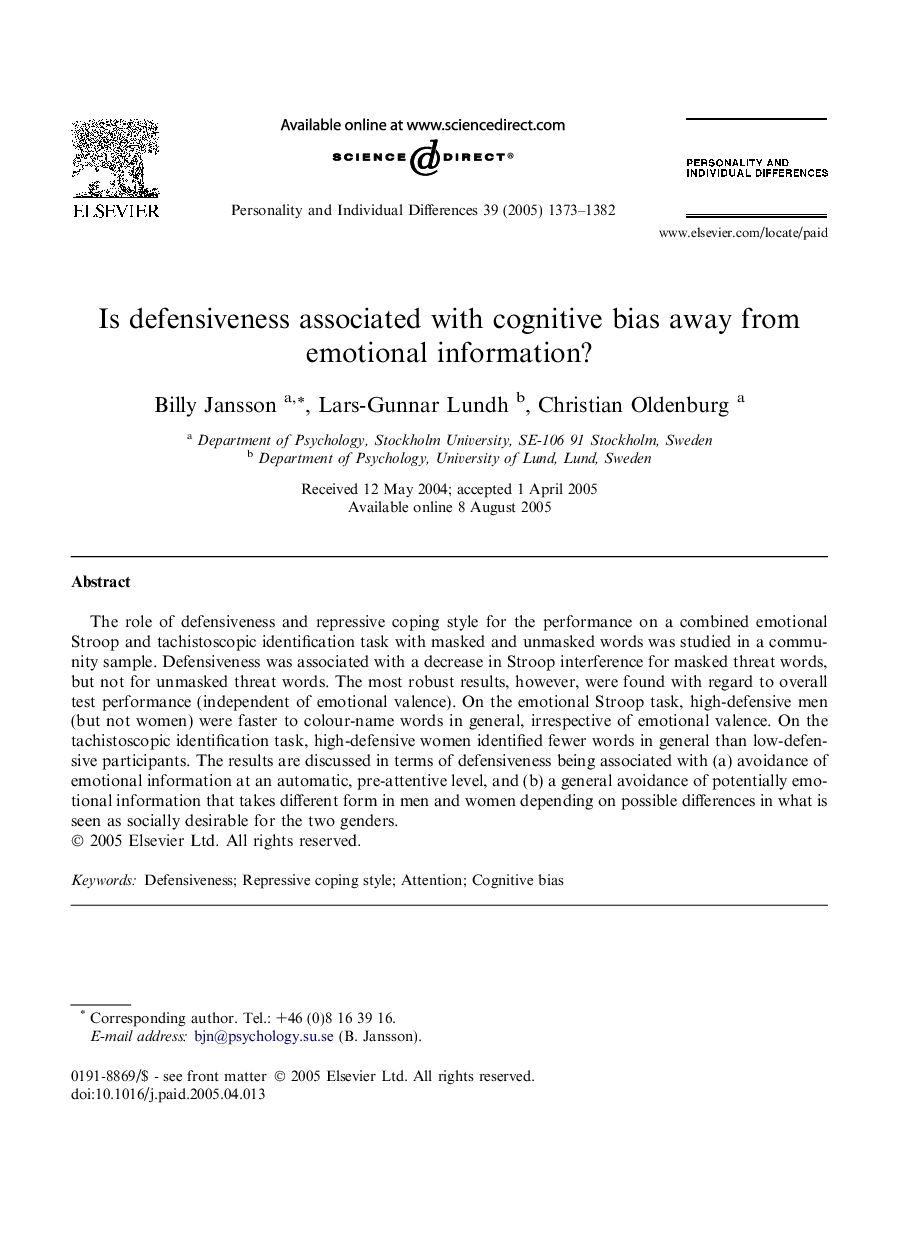| Article ID | Journal | Published Year | Pages | File Type |
|---|---|---|---|---|
| 10440829 | Personality and Individual Differences | 2005 | 10 Pages |
Abstract
The role of defensiveness and repressive coping style for the performance on a combined emotional Stroop and tachistoscopic identification task with masked and unmasked words was studied in a community sample. Defensiveness was associated with a decrease in Stroop interference for masked threat words, but not for unmasked threat words. The most robust results, however, were found with regard to overall test performance (independent of emotional valence). On the emotional Stroop task, high-defensive men (but not women) were faster to colour-name words in general, irrespective of emotional valence. On the tachistoscopic identification task, high-defensive women identified fewer words in general than low-defensive participants. The results are discussed in terms of defensiveness being associated with (a) avoidance of emotional information at an automatic, pre-attentive level, and (b) a general avoidance of potentially emotional information that takes different form in men and women depending on possible differences in what is seen as socially desirable for the two genders.
Keywords
Related Topics
Life Sciences
Neuroscience
Behavioral Neuroscience
Authors
Billy Jansson, Lars-Gunnar Lundh, Christian Oldenburg,
